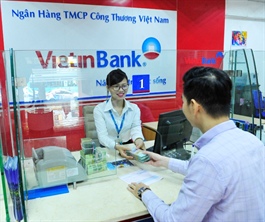Strengthening tax administration across the e-commerce landscape
Strengthening tax administration across the e-commerce landscape
Vietnam is a country where internet users account for more than half of the country’s population and this is expected to increase sharply in the coming years.

By Phan Hoai Nam Tax director, KPMG Vietnam
|
According to the “e-Conomy SEA 2020” report by Google, Temasek, and Bain & Company, Vietnam’s internet economy reached a total value of around $14 billion in 2020 and will likely reach $52 billion in 2025, with a 29 per cent compound annual growth rate.
With the development of the internet economy in recent years, e-commerce business activities have become much more diversified. Such activities have adopted multiple mobile and lifestyle consumer-centric platforms including social networks, online booking services, online advertising services on social networks, and many other types of e-commerce. As a result, related businesses do not need a presence in a host country to conduct sale transactions, and this has drawn the tax authorities’ attention with a view to building a tax regime that is effective to manage this new business model.
In principle, all foreign organisations and individuals earning income in Vietnam, whether present in Vietnam or not, are obliged to pay taxes into the state budget. For foreign organisations and individuals present in Vietnam, the tax declaration and payment are simple. For those not present, it is implemented on the basis of foreign contractor tax in accordance with Circular No.103/2014/TT-BTC guiding tax obligations applicable to foreign organisations and individuals doing business in Vietnam or earning income here.
However, Vietnam’s tax authorities view that the tax amount collected from e-commerce activities is still very limited. The main reason is attributable to the specific nature of e-commerce which is different from traditional commerce in terms of scale of activities within the non-border internet environment.
As a new policy development, the Law on Tax Administration No.38/2019/QH14 effective from last July has stipulated the regulations of tax administration for e-commerce and digital business transactions. This new measure aims at providing stricter management as well as limiting the loss of state budget revenue in the context of continuous business expansion of foreign individuals and organisations in this field.
The law clearly stipulates that for e-commerce business, digital-based business, and other services provided by an overseas supplier without a permanent establishment in Vietnam, the overseas supplier is obliged, either directly or to authorise a third party, to conduct tax registration, declaration, and payment in Vietnam.
The detail for tax administration for e-commerce activities was set out in Decree No.126/2020/ND-CP, taking effect from December 2020, on detailing a number of articles of the Law on Tax Administration. The decree specifies that commercial banks and payment intermediary service providers will now have to pay tax obligations on behalf of foreign individuals and organisations with income-generating e-commerce business in Vietnam.
Accordingly, commercial banks and intermediary payment service providers are responsible for withholding and paying the tax liabilities of overseas suppliers who do not have a permanent establishment in Vietnam and are doing e-commerce business or digital-based businesses with organisations and/or individuals in Vietnam.
It works as follows – firstly, overseas suppliers are required to register, declare, and pay taxes directly with the Vietnamese tax authorities, or authorise a third party to register, declare, and pay taxes. However, where the overseas supplier has not registered to pay taxes directly, the commercial bank or the intermediary payment service provider shall on a monthly basis withhold and pay tax liabilities for each product, good, and service where the individual buyer makes payment to the overseas supplier. The General Department of Taxation (GDT) will identify the names and websites of those overseas suppliers so that the commercial bank or intermediary payment service provider shall perform the withholding obligations.
Where an individual buys goods or services from an overseas supplier with a form of payment which the commercial bank or intermediary payment service provider cannot withhold tax, the commercial bank or the intermediary payment service provider shall notify the GDT.
Although the tax administration policy for e-commerce has been enacted, there are currently no specific regulations on tax administration and policies for various issues.
The aforementioned regulations will place significant administrative burdens on banks and payment intermediaries. In order to comply with the above provisions on tax withholding obligations, banks and payment intermediaries must have resources to monitor and handle this work.
In terms of policy, the withholding agents also need clear guidance to fulfill the related withholding obligation, for example the withholding tax rates applied to payment of specific transaction; if the withholding agents have to identity the transaction from specific overseas suppliers and to withhold tax by themselves or upon a clear instruction from the tax authority on the detailed overseas supplier; the mechanism of reporting and coordination between the overseas supplier, the tax authorities, and the withholding agents; and so on.
The upcoming circular providing guidance to Decree 126 is expected to provide details, and we assume a transition period for the related parties to have time to implement this new tax withholding mechanism.n
The views and opinions expressed herein are those of the interviewees/survey respondents/authors and do not necessarily represent the views and opinions of KPMG Ltd..

























